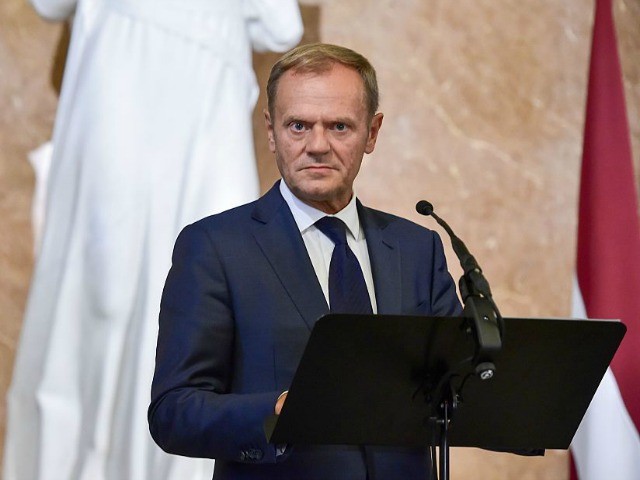Populism is a “virus” that poses the main threat to the European Union (EU) project, European Council President Donald Tusk warned in an address to an influential Brussels think tank with close ties to the Open Society Foundations.
Asserting that Adolf Hitler came to power because people lost faith in “the moderate centre”, the Council president essentially marked anyone who opposes the status quo in politics as a danger, in his speech to the European Policy Centre last night.
Tusk announced that opposition to “liberal democracy” threatens to disintegrate the EU “in a political and ideological sense” before branding voters skeptical of Brussels and of undemocratic trade deals as carriers of a “virus”.
“You will have noticed that the anti-liberal virus produces similar symptoms: both in Europe and beyond. Its carriers dislike the Union, so they are happy about Brexit. They don’t want trans-Atlantic solidarity, so they promote isolationism. They look up to Putin and support Trump,” the European Council President said.
Though only namechecking right wing people and movements in his speech, Tusk made it clear that left wingers who oppose corporatist and secretive “free trade” deals are in the same basket as the anti-mass migration Alternative for Germany party.
Referring to “confusion” surrounding the Transatlantic Trade and Investment Partnership (TTIP) as “fuel for… radicals”, Tusk said he wants to “put a stop to deliberation” over the anti-democratic trade deal. The Council President told the room of Eurocrats and elites that, “we have the right, we have the duty, and we have the capabilities” to do so.
Cautioning that the forces which threaten the EU are “becoming louder and louder in increasing numbers” and “moving from the political periphery onto the main stage”, the only clear feature Tusk identified of this group is that they question the system.
“They proclaim a need for total change, they want to subvert the political order we call liberal democracy. Change for the sake of change has become their fetish”, he said.
Drawing a parallel between people who are dissatisfied with the political elite and Germans in the 1930s, Tusk said ordinary people “no longer believed that the moderate centre was a guarantee of security.”
He continued: “I categorically reject this fatalistic approach. I categorically reject this temptation to give in to these trends. I do not accept arguments about the decadence of Europe and the West”.
Asserting that “liberal democracy without force is powerless, even pathetic” Tusk argued that the EU should assert its values more forcefully.
Committed to fostering closer integration in the bloc, the European Policy Centre works with and receives funding from globalist billionaire George Soros’ Open Society Foundations.
According to LobbyFacts.eu, the centre is the sixth most influential think tank in Brussels based on high-level meetings held with the European Commission, the unelected body which holds all the power in the bloc.
In a 2006 speech at the European Policy Centre, Soros hailed the EU as an “inspiring” example of an “open society” for its liberalism, remarking that “the world badly needs a more united Europe committed to a global open society”. The hedge fund millionaire identified “authoritarian” Russia as a “problem” and urged the EU to become “stronger” to counter this.
